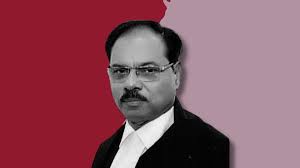Notice against Justice Shekhar Kumar Yadav pending, 50 MPs confirm signing

In a significant political and legal move, 50 Members of Parliament have signed a motion seeking the impeachment of Justice Shekhar Kumar Yadav of the Allahabad High Court. They submitted the notice to Rajya Sabha Chairman Jagdeep Dhankhar, citing repeated incidents of alleged misconduct and controversial remarks during hearings.
This rare step has sparked debate over judicial conduct and accountability, with many now questioning how far judicial independence can go without checks.
Why MPs Want Action
Justice Yadav has drawn criticism for his remarks in sensitive cases. In several orders and bail hearings, his observations touched on issues beyond the legal questions, including topics like religion and morality. Critics claim such comments show bias and overstep judicial boundaries.
MPs say their notice isn’t based on isolated incidents. Instead, they argue that the judge has shown a consistent pattern of conduct that undermines public confidence in the judiciary. They believe this motion is necessary to uphold the neutrality and dignity of the courts.
How Judicial Impeachment Works
Under Article 124(4) of the Indian Constitution, Parliament can impeach a High Court or Supreme Court judge for “proved misbehavior or incapacity.”
To start the process, at least 50 Rajya Sabha MPs or 100 Lok Sabha MPs must sign a motion. After the motion is submitted, the presiding officer decides whether to admit it. If admitted, a three-member inquiry committee investigates the charges. This committee typically includes a Supreme Court judge, a Chief Justice of a High Court, and a distinguished jurist.
If the committee finds the judge guilty, both Houses of Parliament must approve the motion with a two-thirds majority. Only then can the President remove the judge.
A Rare Event in Indian Democracy
Impeachment of judges is extremely rare in India. Only a few such motions have been attempted, and none has led to an actual removal. The most well-known case involved Justice Soumitra Sen of the Calcutta High Court in 2011. The Rajya Sabha passed the motion, but Justice Sen resigned before the process finished.
Given this history, the motion against Justice Yadav carries major legal and political weight.
What the MPs Are Saying
Several MPs who signed the notice have spoken out. One senior opposition leader said, “This is about protecting the image of the judiciary. When a judge makes repeated statements that appear biased or ideological, it hurts public trust.”
Another MP stated, “We aren’t targeting anyone for political reasons. We’re asking for a fair investigation into conduct that has raised serious concerns.”
The MPs believe their action will reinforce public faith in democratic institutions rather than weaken it.
Experts Weigh In
Legal experts have mixed views. Some say impeachment should be a last resort and warn against politicizing the judiciary. Others argue that Parliament must act when clear signs of misconduct appear.
Retired Justice Madan Lokur said that while impeachment should be rare, “concerns about misconduct should not be ignored.” He stressed the importance of balance—protecting judges from undue influence while still holding them accountable.
Former Attorney General Mukul Rohatgi added, “Every judge must remain neutral. If MPs believe a serious breach occurred, they have the right to seek action.”
Chairman’s Decision Awaited
The next step lies with Rajya Sabha Chairman Jagdeep Dhankhar, who must decide whether to admit the motion. He is expected to consult legal experts before making a decision.
If the motion is admitted, a formal inquiry will follow. If it is rejected, the MPs may demand greater transparency in how such decisions are made.
Either way, the case has drawn national attention and reignited discussions around judicial ethics and institutional accountability.
Public Trust and Judicial Responsibility
This episode reminds us that even the highest offices are not above scrutiny. The judiciary holds immense power in India, but that power comes with a responsibility to remain neutral, fair, and transparent.
In recent years, public confidence in the courts has been shaken by controversial rulings and outspoken judges. Citizens expect judges to stick to facts, interpret the law impartially, and avoid statements that may appear politically charged.
The motion against Justice Yadav reflects these growing concerns. Whether or not the process moves forward, it shows that elected representatives are willing to question authority when needed.
Conclusion
The impeachment notice against Justice Shekhar Kumar Yadav is a rare and bold move. While it may or may not pass the early stages, it sets a precedent for future scrutiny of judicial behavior. India’s democracy depends on a judiciary that is both independent and accountable.
This case may reshape how we view judicial responsibility and public oversight in the years to come.






